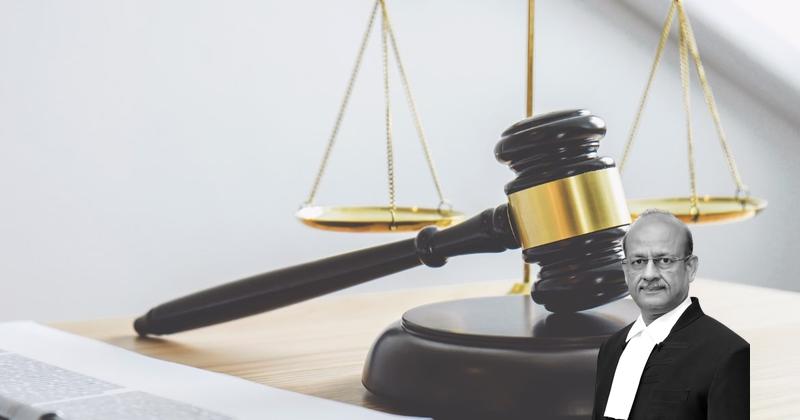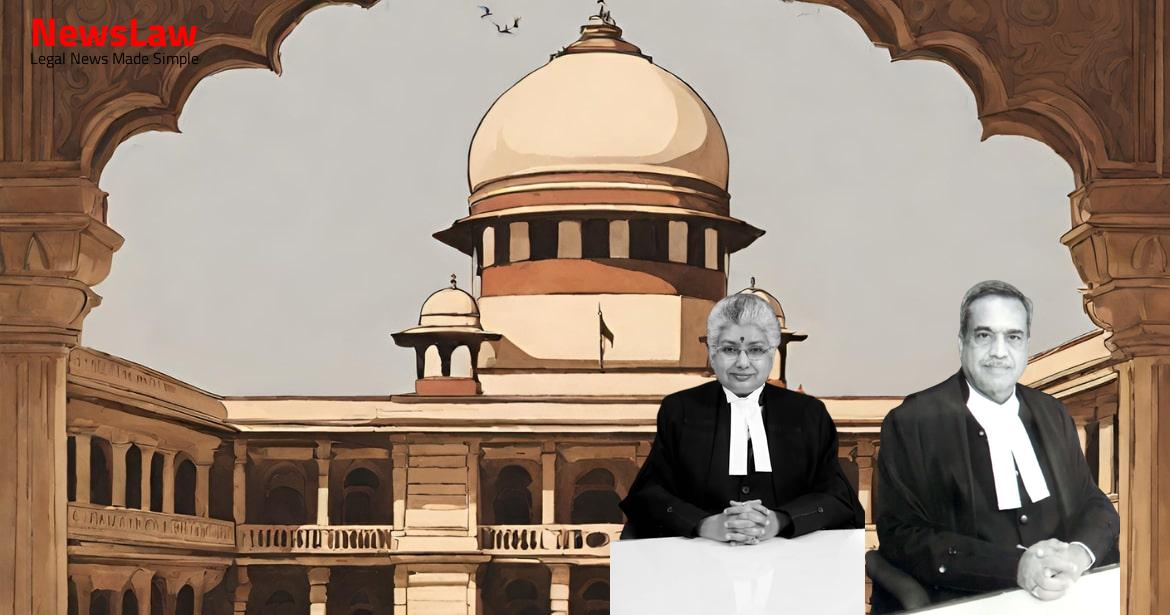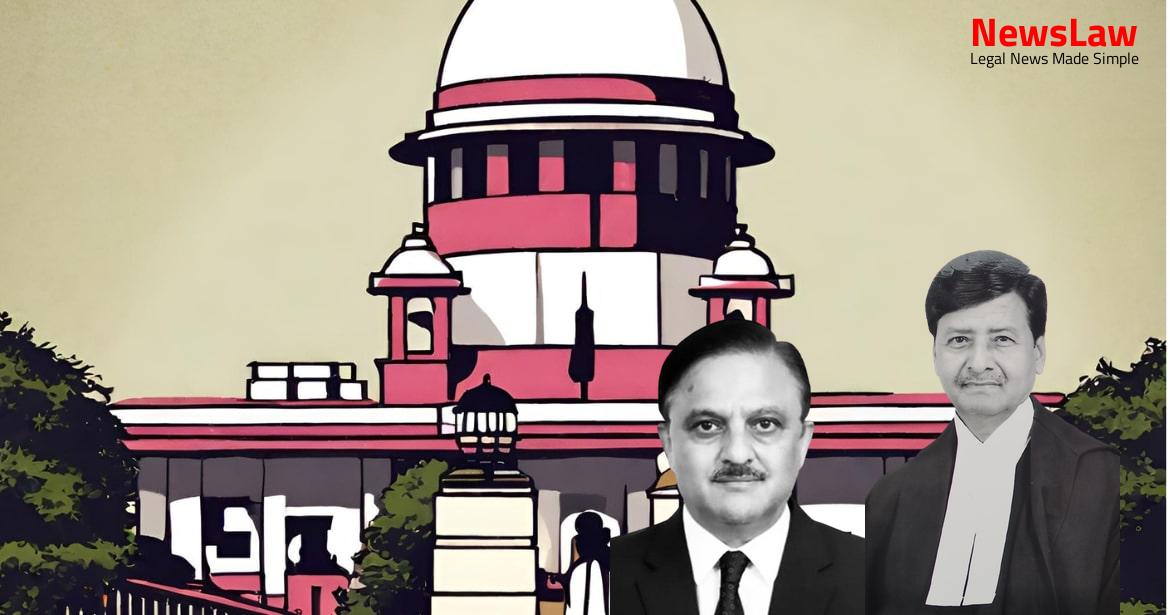A contention was raised in the writ petition that every person, who does not belong to Scheduled Tribe and residing in the Scheduled Area, is an unlawful occupant and, therefore, is disentitled to exercise his right to vote in any constituency in the Scheduled Area. Another contention raised in the petition is that in view of sub-clause (1) of Clause 5 of the Fifth Schedule unless there is a specific notification issued by the Hon’ble Governor of the State applying any particular Central or State law to a Scheduled Area, none of the provisions of the Central or State laws are applicable to that particular Scheduled Area. The first contention raised by the learned counsel appearing for the appellant is that none of the laws enacted by the Central or the State Legislature are applicable to a Scheduled Area unless there is a specific notification issued under sub-clause (1) of Clause 5 of the Fifth Schedule by the Hon’ble Governor declaring that any particular law will be applicable to the Scheduled Area. He submitted that unless a specific notification is issued by the Hon’ble Governor clearly incorporating the title and other particulars of every Act of the Parliament and the State Legislature, which will be applied to the Scheduled Area, no Act of Parliament or State Legislature is applicable to a Scheduled Area.
The first question to be answered by this Court is whether the Central and the State Acts can apply to a Scheduled Area unless a specific notification making the said Acts applicable to the Scheduled Area is issued by the Hon’ble Governor.
In particular and without prejudice to the generality of the foregoing power, such regulations may— (a) prohibit or restrict the transfer of land by or among members of the Scheduled Tribes in such area; (b) regulate the allotment of land to members of the Scheduled Tribes in such area; (c) regulate the carrying on of business as money-lender by persons who lend money to members of the Scheduled Tribes in such area. directing by a notification that a particular State or Central Act will apply to a Scheduled Area subject to certain modifications. (1) The executive authority of a Province extends to excluded and partially excluded areas therein, but, notwithstanding anything in this Act, no Act of the Federal Legislature or of the Provincial Legislature, shall apply to an excluded area or a partially excluded area, unless the Governor by public notification so directs, and the Governor in giving such a direction with respect to any Act may direct that the Act shall in its application to the area, or to any specified part thereof, have effect subject to such exceptions or modifications as he thinks fit. (2) The Governor may make regulations for the peace and good Government of any area in a Province which is for the time being an excluded area, or a partially excluded area, and any regulations so made may repeal or amend any Act of the Federal Legislature or of the Provincial Legislature, or any existing Indian law, which is for the time being applicable to the area in question. Sub-Section (1) of Section 92 of the Government of India Act, 1935 and sub-clause (1) of Clause 5 of the Fifth Schedule are completely different.
Whereas, sub-Section (1) of Section 92 of the Government of India Act, 1935 provides that no law of Federal or Provincial Legislature will apply to an Excluded Area unless a notification is issued by the Hon’ble Governor issuing a specific direction to that effect. The questions are as follows: ( Chebrolu Leela Prasad Rao case [ Chebrolu Leela Prasad Rao v. The Governor is not authorised to enact a new Act under the provisions contained in Para 5(1) of Schedule V to the Constitution.
Area reserved for the Governor under the provisions of Para 5(1) is prescribed. Province of Bihar, 1949 SCC OnLine FC 23 : ILR (1949)
Also Read: https://newslaw.in/case-type/criminal/legal-analysis-of-judgement-on-discharge-in-a-murder-case/
28
Pat 703 : 1949 FLJ 225], it was held that the power of the Governor under Para 5 is a legislative power and the Governor is empowered to change or modify the provisions of the Act or the section as he deems fit by way of issuing a notification. The power under Para 5(1) is limited to the application of the Governor’s decision to apply an Act or making modification or creating exceptions. The Governor is empowered by Para 5(3) to repeal or amend any Act of Parliament or State Legislature, following the procedure prescribed therein, in exercise of making regulations as provided under Para 5(2) of Schedule V. The excluded and the partially excluded areas were areas so declared by Order in Council under Section 91 and under Section 92.
The extent of the legislative power of the Governor under Section 92 of the Government of India Act, 1935 in making regulations for the peace and good government of any area conferred on the Governor in the words of Lord Halsbury “an utmost discretion of enactment for the attainment of the objects pointed to.” (See Riel v. These words were held to embrace the widest power to legislate for the peace and good government for the area in question.” ”
(emphasis added)
Also Read: https://newslaw.in/case-type/criminal/protection-of-public-servants-in-criminal-proceedings/
Again, in paragraph 52, the Constitution Bench answered Question (1)(b) as under: “52. The legislative power can be exercised by Parliament or the State subject to the provisions of Part III of the Constitution. Therefore, to conclude; (i) All the Central and the State laws which are applicable to the entire State of Orissa will continue to apply to the Scheduled Area unless, in exercise of powers under sub-clause (1) of Clause 5 of the Fifth Schedule, there is a specific notification issued by the Hon’ble Governor making a particular enactment inapplicable, either fully or partially; (ii) The power of the Hon’ble Governor under Clause 5 of the Fifth Schedule is restricted to directing that a particular law will not apply to the Scheduled Area or it will apply with such modifications as may be specified in the notification issued under sub- clause (1) of Clause 5 of the Fifth Schedule or while making Regulations in terms of sub-clause (2) of Clause 5 of the Fifth Schedule; (iii) The power of the Hon’ble Governor under Clause 5 of the Fifth Schedule does not supersede the Fundamental Rights under Part III of the Constitution of India; and (iv) Therefore, the Fundamental Rights conferred by sub-clause (e) of Article 19(1) of the Constitution of India on the citizens can also be exercised in relation to the Scheduled Area.
Case Title: ADIVASIS FOR SOCIAL AND HUMAN RIGHTS ACTION Vs. UNION OF INDIA (2023 INSC 512)
Case Number: C.A. No.-002202-002202 / 2012



